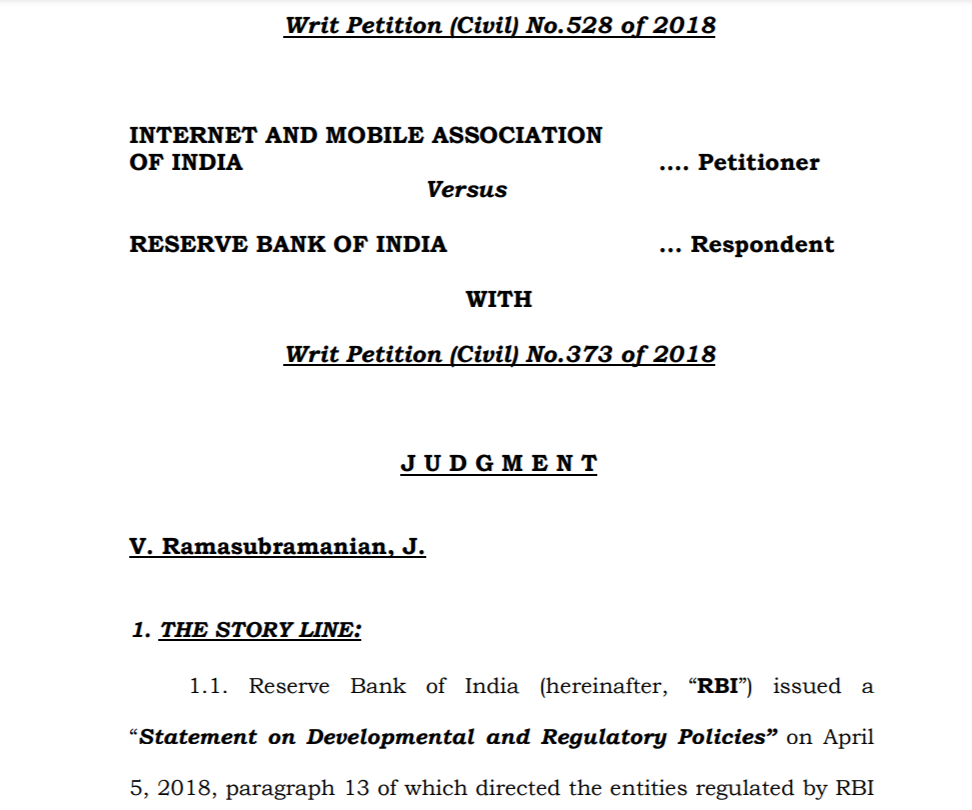Crypto Regulation in India: RBI Holds Firm While Supreme Court Demands Clarity

Crypto’s future in India remains clouded as the Reserve Bank of India doubles down on its skepticism, even as global adoption of blockchain and digital assets accelerates. The regulatory limbo has thrown investors and exchanges into a holding pattern while legal debates and policy reviews drag on.
India’s central bank recently reinforced its commitment to caution surrounding cryptocurrencies, stating concerns about potential threats to monetary policy and financial stability. RBI’s leadership, at a recent press event, acknowledged that a government committee is actively reviewing crypto policy but emphasized ongoing anxiety about the risks posed by unregulated digital assets.
The ongoing committee review signals the government is still far from consensus. Meanwhile, India’s Supreme Court is stepping up pressure, urging clarity and warning of chaos from regulatory uncertainty. The Supreme Court’s bench has pushed back against the notion of an outright crypto ban, noting that the digital economy and decentralized finance markets are advancing worldwide, making prohibition impractical.
Since the Supreme Court overturned the 2018 banking ban in 2020, India’s regulatory landscape for cryptocurrencies has wavered between caution and competition, with courts advocating openness while financial authorities urge restraint. According to expert analysis, this friction mirrors global debates: how to encourage innovation in altcoins, staking, or DeFi, without compromising economic stability or enabling illicit activity.
India’s crypto policy journey has been rocky. The RBI originally banned banks from servicing crypto businesses, but this step was later struck down on constitutional grounds. Following the landmark court ruling, RBI amended its approach, pausing direct opposition yet still voicing warnings over risks from crypto’s use in money laundering and potential to erode monetary policy strength.
Adding to the pressure, India introduced a steep 30% tax on crypto gains and a 1% TDS on transactions, shaping one of the strictest tax codes for crypto traders worldwide. Critics argue such heavy-handed measures stunt both mainstream adoption and the development of crypto-based financial products.

For Indian investors and businesses, the lack of clear rules hampers long-term planning and fuels uncertainty. Many experts suggest taking cues from other major economies that are piloting regulatory sandboxes, licensing frameworks, or robust anti-money laundering protocols for digital tokens and blockchain platforms.
The stakes for both government and market participants are higher than ever, with India’s digital asset market growth closely watched both domestically and internationally. Until concrete rules are established, exchanges and users must navigate an environment where judicial encouragement clashes with central bank skepticism—a divide unlikely to close soon.
Internal links for further reading:
- Learn about the best crypto wallets for secure storage
- Explore key facts about staking and passive crypto income in our guide on what is staking in crypto
- Discover trends in cryptocurrency trading for beginners
